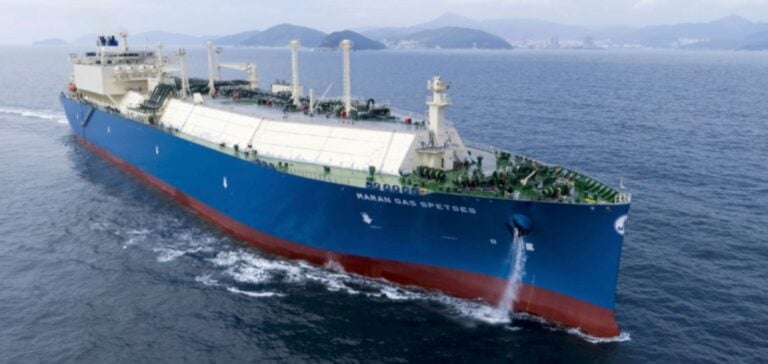Indian state-owned **GAIL** (Gas Authority of India Ltd.) has awarded a tender for the supply of 12 annual cargoes of **LNG** to Qatar Energy Trading for a five-year period starting in April 2025. According to industry sources, the agreement is based on a pricing structure indexed at **115% of Henry Hub**, with an additional fixed cost of **$5.66 per MMBtu**.
This deal comes as the global LNG market faces anticipated **tightness** in 2025 and 2026. Delays in the construction and commissioning of several LNG export projects have pushed forward prices higher for this period. Consequently, suppliers are adjusting their offers to balance commercial risks and opportunities.
Contract structure and flexibility
Unlike standard destination delivery (**DES**) contracts linked to **Henry Hub**, which typically have coefficients ranging between **120% and 121%**, this agreement features a lower coefficient (115%) and a higher fixed cost. This formula aligns with GAIL’s existing commitments with American export facilities such as **Sabine Pass** and **Cove Point**.
The contract also offers **volume flexibility**, allowing for a delivery range of **3.2 to 3.8 trillion BTU (TBtu)** with an additional tolerance of **5%**. This clause enables the parties to optimize delivered quantities based on market conditions and downstream requirements.
Volume needs for the Indian market
In India, GAIL primarily markets regasified LNG (**RLNG**) through long-term contracts. However, shortages in available volumes have reduced its competitiveness in the **spot market**. During a recent financial report, **Rakesh Jain**, GAIL’s Chief Financial Officer, highlighted that elevated spot market prices had limited procurement during the July-September quarter.
With this new deal, GAIL will not only secure deliveries for existing contracts but also strengthen its position in the **spot market**. This is particularly crucial for meeting the needs of **city gas distribution companies** in India, which faced a reduction in domestic gas allocations in recent months.
Optimization for Qatar Energy Trading
On the supplier side, **Qatar Energy Trading** benefits from the ability to optimize cargoes originating from both the United States and the Middle East. However, **potential losses** are anticipated for 2025 and 2026 due to **pricing spreads** between markets. The fixed cost of **$5.66/MMBtu** could result in negative margins during these years.
Nevertheless, analysts believe that initial losses could be offset by potential gains starting in **2027**, when spot market prices are expected to soften. This strategy allows Qatar Energy Trading to diversify its medium-term commitments.
Strategic stakes for GAIL
This agreement aligns with **GAIL**’s clear strategy: to stabilize its gas supply amid global volatility. Access to fixed volumes at relatively competitive prices will allow the company to better manage costs and fulfill contractual obligations.
For the Indian market, the increase in regasified volumes will also address the rising demand for energy across industrial and urban sectors.






















